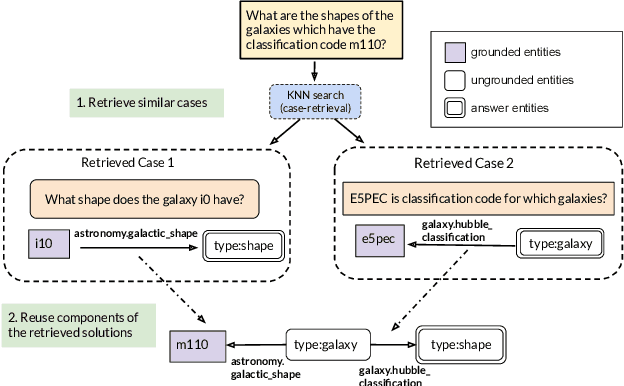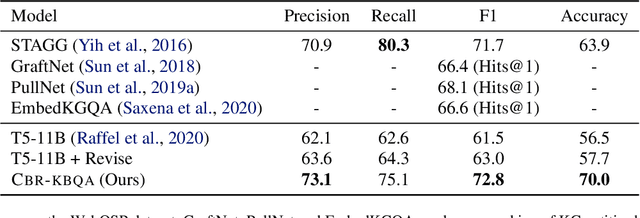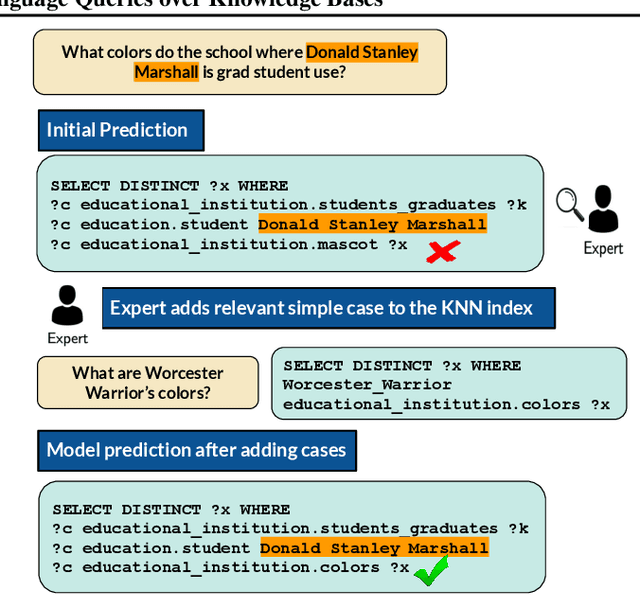Case-based Reasoning for Natural Language Queries over Knowledge Bases
Paper and Code
Apr 18, 2021



It is often challenging for a system to solve a new complex problem from scratch, but much easier if the system can access other similar problems and description of their solutions -- a paradigm known as case-based reasoning (CBR). We propose a neuro-symbolic CBR approach for question answering over large knowledge bases (CBR-KBQA). While the idea of CBR is tempting, composing a solution from cases is nontrivial, when individual cases only contain partial logic to the full solution. To resolve this, CBR-KBQA consists of two modules: a non-parametric memory that stores cases (question and logical forms) and a parametric model which can generate logical forms by retrieving relevant cases from memory. Through experiments, we show that CBR-KBQA can effectively derive novel combination of relations not presented in case memory that is required to answer compositional questions. On several KBQA datasets that test compositional generalization, CBR-KBQA achieves competitive performance. For example, on the challenging ComplexWebQuestions dataset, CBR-KBQA outperforms the current state of the art by 11% accuracy. Furthermore, we show that CBR-KBQA is capable of using new cases \emph{without} any further training. Just by incorporating few human-labeled examples in the non-parametric case memory, CBR-KBQA is able to successfully generate queries containing unseen KB relations.
 Add to Chrome
Add to Chrome Add to Firefox
Add to Firefox Add to Edge
Add to Edge